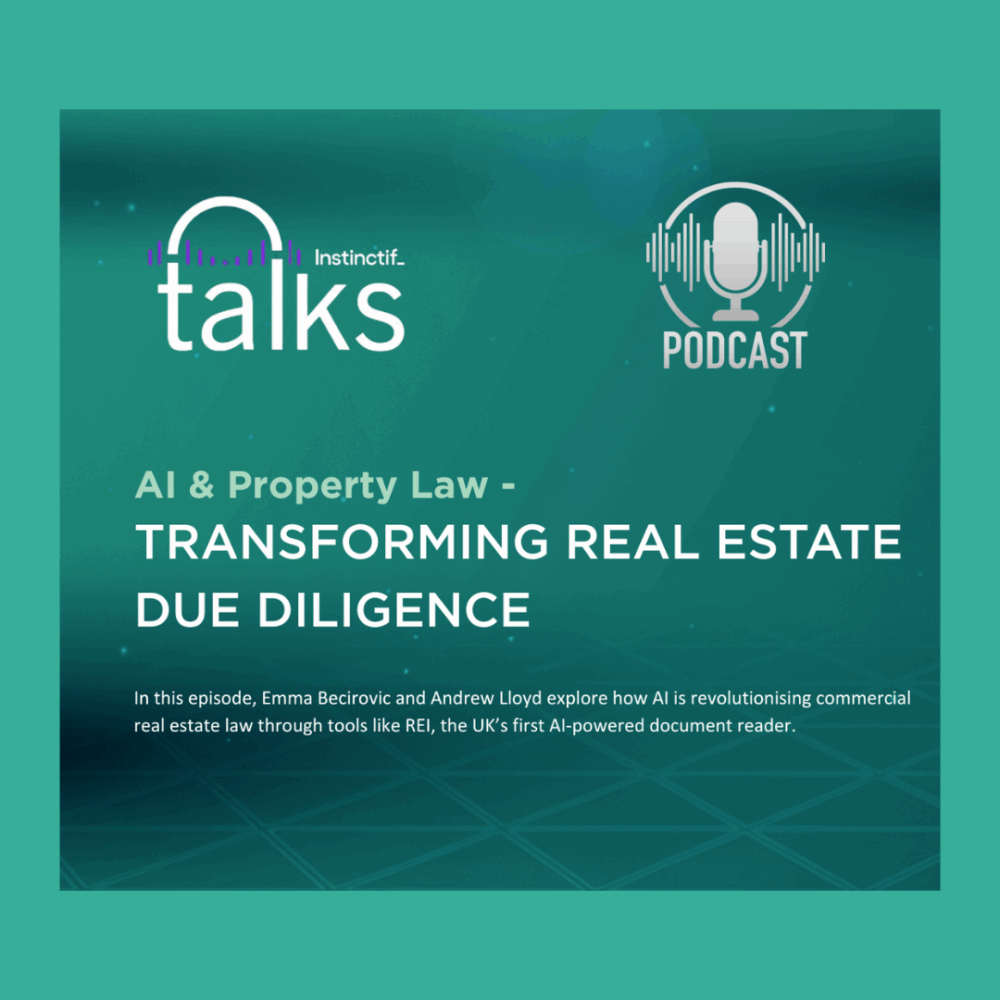By Andrew Lloyd and Dom Conte
Generative AI is set to transform the legal real estate industry in the coming months and years by unlocking powerful new data analysis and automation capabilities. This fast-developing technology is prompting new efficiencies through accuracy and speed, creating a future where the use of artificial intelligence in the industry is no longer a luxury, but a commercial must. Generative AI builds on the capabilities of traditional AI, moving from the analysis of historical data to the creation of new content. The ability to automatically generate new data, text, videos and more is a paradigm shift from what was previously only possible by humans.
What can it do?
It allows for the analysis of vast amounts of data to derive new insights in powerful ways that can enhance areas such as portfolio management, risk management and tracking building efficiency. Previously arduous and time-consuming jobs can be handled by a generative AI tool, increasing lawyers’ efficiency and capacity to focus on the stuff they do best, whether this is taking on more caseloads or focusing on higher-value tasks to increase the law firm’s bottom line. At a time where competition is fierce and budgets are tight, this could be invaluable. It is likely that, within 12 months, wider adoption of generative AI will reach a tipping point where clients will demand the use of these powerful new capabilities.
It will no longer be a “nice to have”, but a core part of client expectations. Law firms that are prepared and accepting of a shift to a working style that incorporates AI will be light years ahead of those that are caught on the back foot. One area where generative AI shows particular promise is understanding and summarising complex legal documents such as leases. Generative AI can identify and summarise key commercial points in legal documents very effectively if properly trained. It also allows normalising and comprehending unstructured data formats that have been challenging for traditional AI, such as old handwritten documents. These exciting new models are already streamlining title and lease analysis for our client law firms and have significant future potential for other document-heavy real estate processes.
A note of caution
While highly promising, it must be cautioned that significant limitations exist around data quality, bias and interpretability of generative AI outputs. As a result, there must be careful and rigorous processes in place to validate results against original data sources. Without proper examination of this, there is a risk of a lack of trust in the information being provided. Quality control is critical when using generative AI for demanding legal and transactional work. Getting accurate, lawyer-grade results requires detailed prompt engineering, complex pre/post-processing, and cross-checking outputs across multiple generative AI models. A high level of investment is required to propel the use of AI in the industry, with significant time and monetary input needed to create scalable solutions. Due to this, it will necessitate working with credible, third-party generative AI vendors that have not only the investment but also access to people with the right skill sets required to build useful models. Data privacy and copyright concerns are also an important consideration. These can be addressed by working with E reputable vendors using cloud platforms with robust data residency controls.
The edge of tomorrow
The power and potential of generative AI has top law firms already adopting the technology through specialised legal vendors for use cases such as summarising complex documents. In the next year, we anticipate that more powerful models will come to market, which in turn will allow market leaders to save their law firm clients even more time. By moving away from pure objective analysis into more subjective risk identification, firms should be prepared for workstreams where less lawyer review is needed for routine drafting and diligence. At present, trained AI can identify the key commercial points in a document and extract them. Generative AI can go one step further into analysis, presenting the information it has extracted into formats that are digestible for both lawyers and their clients. Generative AI can also play a role in helping property lawyers understand the emerging trends within their sector. Once trained, it can digest vast, publicly available data sets and rapidly analyse them, giving lawyers the capability to share data-backed advice on topics such as risk management or energy efficiency. Generative AI is rapidly heading towards mainstream adoption across the real estate industry in the coming months. Those embracing the new technology can gain significant competitive advantages through productivity boosts and augmented insights. At the same time, critical processes around quality validation, model monitoring, and human oversight will all be essential for ensuring generative AI outputs are accurate, unbiased, and legally sound. Carefully balancing the transformative potential of generative AI with its current limitations will separate the leaders from the laggards in real estate’s AI-driven future.
(Andrew Lloyd is managing director of Search Acumen and Dom Conte is chief product officer of Avail)











